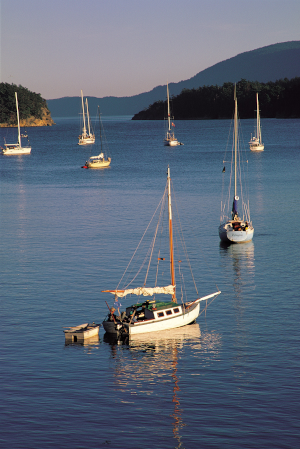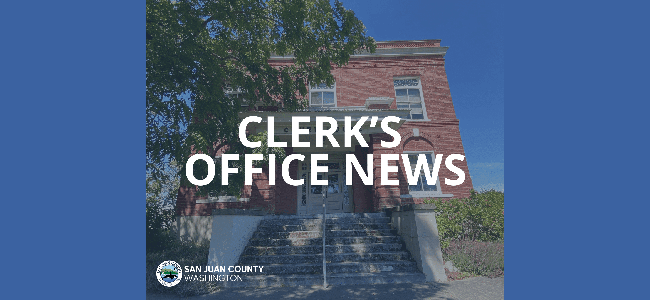— from Tina Whitman, Friends of the San Juans —

The 2020 boating season is officially upon us, and soon our anchorages will begin to fill with local and visiting private boats. Our amazing group of islands, where boaters find wonder and relaxation, are also where fish and wildlife find food and shelter.
One of the Salish Sea’s most critical and sensitive marine habitats is eelgrass. This flowering plant grows in shallow, light-filled marine waters. Eelgrass nurtures many species, including crabs and juvenile Chinook salmon and is where Pacific herring lay their eggs.
Pacific herring are small schooling fish that play a big role in marine food webs by supporting salmon, which in turn feed the Southern Resident orcas. In San Juan County, there are just four remaining herring spawning areas: East Sound and West Sound on Orcas Island; Blind Bay on Shaw Island; and the Mud Bay and Hunter Bay region of Lopez Island. Historic herring spawning areas were located in the Westcott/Garrison Bay region of San Juan Island; areas where significant declines in eelgrass have also
occurred.
Boaters have an important role to play in protecting marine habitat. Eelgrass damaged by boat anchors can take years to recover. While the impact of each individual anchoring event may be small, the combined effects of continual boat anchor damage is significant. To help salmon and the endangered Southern Resident orcas, anchor out in waters deeper than the eelgrass, or if available, use a mooring buoy (please check current closures due to Covid-19). While eelgrass is present at most popular anchorages in the San Juans, in many locations the shallow meadows can be easily avoided by anchoring in waters deeper than 15 feet.
Take a few minutes to educate yourself about what eelgrass looks like and where it typically grows. You can find an eelgrass depth map and other resources for boaters at sanjuans.org/greenboating; use the map to help protect habitat by anchoring out beyond the eelgrass.
Boaters can help protect marine mammals by keeping your distance, reducing speeds, and turning off fish finders and echo sounders when not in use. Do your part to keep marine waters clean by using pump outs, making sure your boat is in good working order, and quickly cleaning even small oil spills.
Be prepared, be safe, and have fun out there!
**If you are reading theOrcasonian for free, thank your fellow islanders. If you would like to support theOrcasonian CLICK HERE to set your modestly-priced, voluntary subscription. Otherwise, no worries; we’re happy to share with you.**








Boaters in particular are urged to view the excellent map of eelgrass beds and herring spawning areas at the above link:
https://sanjuans.org/greenboating/.